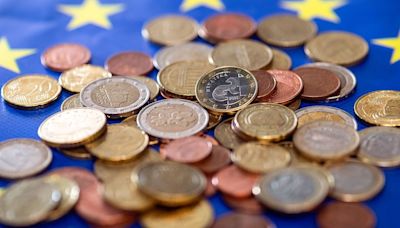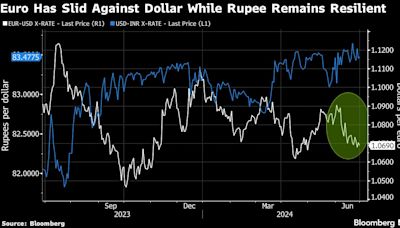Search results
Jun 12, 2023 · Euro foreign exchange reference rates. The reference rates are usually updated at around 16:00 CET every working day, except on TARGET closing days. They are based on the daily concertation procedure between central banks across Europe, which normally takes place around 14:10 CET.
3 days ago · Reference rates over last four months - US dollar (USD) The European Central Bank (ECB) is the central bank of the European Union countries which have adopted the euro. Our main task is to maintain price stability in the euro area and so preserve the purchasing power of the single currency.
Jun 28, 2017 · The ECB reference rates, which are exchange rates against the euro, are updated every day at around 16:00. The Bloomberg rates are collected at the end of the day and updated overnight.
Explore monthly ECB reference exchange rates as well as the effective exchange rates vis-à-vis the euro area’s most important trading partners.
Frequency Daily [D] (Modified), Daily (Original) [D] Currency Chinese yuan renminbi [CNY] Currency denominator Euro [EUR] Exchange rate type Spot [SP00]
Jun 26, 2023 · Frequency Daily [D] (Modified), Daily (Original) [D] Currency Chinese yuan renminbi [CNY] Currency denominator Euro [EUR] Exchange rate type Spot [SP00]
Explore monthly ECB reference exchange rates as well as the effective exchange rates vis-à-vis the euro area’s most important trading partners.
The ECB releases for the first time statistics on insurance corporations’ written premiums, incurred claims and acquisition expenses. The data are annual and are available from 2017. For the euro area aggregate data, a breakdown by type of insurer (reinsurance, life, non-life and composite) is available. Browse data.
Eurostat disseminates data from these sources: ECB for bilateral exchange rates and interest rates (euro yield curves, short-term and long-term) Directorate‑General for Economic and Financial Affairs for effective exchange rates on price and cost competitiveness. Deutsche Bundesbank for exchange rates of most non-EU countries.
Central banks seek to exert influence over both inflation and exchange rates by way of monetary policy. Their main tool for this purpose is the setting of key interest rates. In joining the euro, each EU Member State agrees to allow the European Central Bank (ECB) to act as an independent authority responsible for maintaining price stability ...






